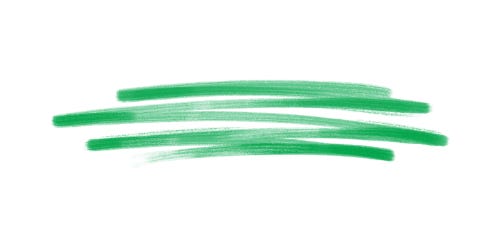Submitting First Books in 2024: Data for poets and publishers
How open is the door to a first book?

!! NOW AVAILABLE: The 2025 version of this post is now live. The numbers and insights for 2024 below are still relevant, but you may want to check out the 2025 trends as well. !!
This is a deeper dive into publishing a poetry book in 2024. I’m hoping to do a special update on compensation (e.g., royalties, author copies, etc.) in the coming months, plus more work on fee waiver research. I create these extra resources as I have the spoons and with the support of paid subscribers. Thank you to everyone who shares these tools with others and backs the project. And thank you to every poet who uses this info to submit to publishers who prioritize accessibility. May your work land with a worthy press. 💚
In January, I shared the major annual update on 175+ reading periods for full-length poetry books. Today I’m exploring what stories that data can tell us about reading periods open only to first books or first/second books.
When it comes to accessibility and transparency, I feel like reading periods for first books should set the standard. These are doors expressly shaped for launching poets’ publishing careers and finding emerging voices. It seems like it would be essential—part of the mission, really—to make the door wide open and welcoming.
As of January 2024, I track 184 reading periods for full-length poetry books. About 15% of those reading periods (28 of the 184) are devoted to finding new and emerging voices, with a focus on just debut books or first/second books.
Here’s one takeaway: 75% of reading periods for first books exclude poets who can’t afford to pay.
More details below.
Reading Periods for First or First/Second Books
I’m sharing the list below with direct links to the presses, in case you don’t want to sort through the big spreadsheet. Some of these have yet to update their info for 2024, and some have been known to go on hiatus at times. I do the best I can to stay on top of changes throughout the year, with monthly updates shared here on Substack and ongoing updates to the spreadsheet.
Changes Book Prize — This is the most generous and accessible reading period on the entire list. A $10,000 prize, with 50 author copies and more, with no submission fee.
Unicorn Press: First Book Competition
Switchback Books Gatewood Prize
YesYes Books Pamet River Prize
Zone 3 First Book Award for Poetry
Milkweed Editions Jake Adam York Prize
New Rivers Press Many Voices Project
Agnes Lynch Starrett Poetry Prize
Milkweed Editions Max Ritvo Prize
Marystina Santiestevan First Book Prize
Black Lawrence Press St. Lawrence Book Award
Silverfish Review Press’ Gerald Cable Award
Autumn House Rising Writer Prize
BOA Editions - A. Poulin, Jr. Prize
Elixir Press - Antivenom Poetry Award
Tupelo Press - Berkshire Prize
Persea Books - Lexi Rudnitsky First Book Prize
Omnidawn - First and Second Book Contest
Academy of American Poets First Book Award
⟶ FYI! For simplicity, I’ll be referring to these as “first books” reading periods, rather than continuing to say “first or first/second books.” This is also why I’m avoiding the phrasing of “debut poetry book.” Twelve of the 28 reading periods accept submissions for either a first or second book. Sixteen are focused only on first books.
How open? There are very few free reading periods just for first books.
Only two of the first book reading periods are truly, totally free: the Changes Book Prize and Green Bottle Press. For comparison, on the full list of publishers, there are 42 fee-free reading periods (including these two).
This means emerging poets who can’t afford fees have limited options. They’ll have to compete in a likely larger pool of poets at the other fee-free reading periods, which don’t focus on first books alone. Their work will likely be vying for consideration among manuscripts from more established poets.
There’s no way to know or guess the numbers on this (unless publishers decide to share), but I wonder how debut poets fare against more established poets when competing in a big submission pool. How many voices are being missed? How many careers are getting delayed?1
The average fee for first book periods is also higher.
In 2024, the overall average fee (for the whole list) is $23—but 19 of the reading periods for first books charge more than that.
Seven of the reading periods for first books charge $30 or more.
The average fee among just first book reading periods is $25. That’s $2 higher than the average fee in the full list of reading periods.
In the main 2024 update, I shared how significant the gap can be between presses on the question of fees. Often it’s smaller, scrappy presses that prioritize accessibility with lower fees, skewing the average and blurring the reality of high-charging presses.
A question that’s been part of this project from the start is: what makes a fee fair? And if we begin to understand fairness, could we get closer to an idea of what a more standard fee could be, among the presses that decide to charge?
When I parsed this for 2024, I found the more accessible reading periods (on the big list) actually charge an average of $14.
If we were to imagine that $14 as a benchmark of a fair (or at least more standard) fee, technically none of the charging reading periods for first books meet it.
With one important exception: Perugia Press charges $15 but is fee-free for poets who are Black, Indigenous, and women of color. This is more accessible than most reading periods that charge a fee.2
Fee waivers are limited for first books.
Of the 26 first book reading periods that charge a fee, only five mention fee support of some kind. Those are:
Perugia Press (as I shared above)
Ghost Peach Prize in Poetry
Autumn House Rising Writer Prize
Omnidawn First and Second Book Contest
Academy of American Poets First Book Award
I think it’s worth noting here that presses charging lower fees to begin with are often centering accessibility in other ways. Like I said, Perugia Press charges $15 but also offers a free submissions to poets who are Black, Indigenous, and women of color. In other words, accessibility in two ways: both the fee itself and a generous fee waiver.
And Ghost Peach is similar—besides offering fee waivers, their fee is $18, which is lower than the majority of this list. For instance, Omnidawn and the Academy charge the highest fee on this list, which is almost twice as much at $35.3
What I notice is that when a press commits to accessibility, it often starts showing up in many ways: the fairness of the amount they charge, how available and generous fee waivers are, transparent info about compensation within their guidelines, easy-to-find contact information and an openness to receiving questions, and so on.
As a writer, you can feel the openness of the door almost as soon as you start reading a press’ guidelines. I’ve been doing this research for about eight years now, and this year I caught myself laughing at how utterly defensive some guidelines sound. (You start laughing at weird things when reading over 175 different guideline pages, one after the next, every January.) When a press is genuinely open and accessible, there’s a generosity that can’t help but come through, even in their guidelines. More and more, I find myself wanting to share my work only with presses that move in that kind of generosity.
The big takeaway: 75% of reading periods for first books exclude poets who can’t afford to pay.
So here’s the breakdown again: 28 reading periods devoted specifically to first books or first/second books. Just two that are fee-free. Five that offer a waiver of some kind.
This means if you can’t afford to pay submission fees, you can access only 7 of the 28 reading periods devoted to first books. That’s just 25% of these special opportunities, which are meant to be a door into poetry for new and emerging voices.
Meaning your voice is missing from 75% of this part of the poetry ecosystem, to the extent I’ve tracked it here.4
What happens when the paths for getting started are also some of the least accessible? Who can open this door?
What if contest judges—often more established writers with more influence—are our best advocates here? What if they only agree to read/judge on the condition that it’s free to submit or the press offers fee support?
What if publishers use this data to assess how their fees compare to their peers—and make changes as needed to be more fair? I’m grateful to publishers who already do this, and I hope more will use the project this way.
What if funders use this data to evaluate how/if potential grantees are delivering on their promises of diversity, equity, and inclusion? I shared an example of this in the 2023 update.
What if we refuse, as poets in solidarity, to submit to reading periods that are inaccessible?
Coming Soon: Compensation
Thanks for staying with me on another deep dive. In a future update, I want to get into more details about compensation. How much are poets paid for their books? How do the prizes track relative to the cost of submission fees?
All the resources and posts here are free—and will continue to be free. This is a collective resource, made with lots of love for all the poetry people.
Something I think about a lot is the artificial inflation of time to launch/grow in your vocation (or publishing career, if you like that language). Inaccessibility has a long-term impact that’s hard to quantify—it stunts the potential of many poets, especially since most reading periods are annual. Miss an opportunity one year because you can’t afford it, wait another year for the chance to try again. Having a book is a key to many later stages in a vocation: post-publication grants and awards, residencies, invitations to present, chances to read with other writers, interviews, etc. But those later stages are often out of reach as long as a first book is out of reach. When a reading period isn’t accessible, it has an exponential effect on a writer’s journey.
I haven’t figured out an elegant way to capture these kinds of nuances in the data/spreadsheet yet! Also important to note that Perugia Press is open only to “women, which is inclusive of transgender women and female-identified individuals. Because gender inequity still occurs in publishing, it is part of our explicit feminist mission to support and promote women’s voices in print.”
Both Perugia and Ghost Peach also offer a higher fee option that includes a copy of the winning book. When presses offer this option, I include the more accessible fee option (lower fee, without a book copy) on the spreadsheet.
Keep in mind the big list of 175+ reading periods I track doesn’t include all the regional opportunities or place-based publishers, opportunities focused on specific identities, etc. Sometimes those reading periods are more accessible! I just haven’t had the bandwidth yet to maintain the current list and also add more niche reading periods to the spreadsheet. When I can, I try to include them in the deadline list in the monthly bulletins.




I think it’s interesting that UPitt defines a first book, as having been published in an edition of 500 copies. I’ve published 5 full- length collections, but none have been in additions of 500 copies. I don’t think any other “first B
This is such a helpful resource and so generous of you to put it into the world! Thank you.